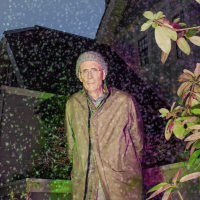The following excerpt is from William Gibson’s Mona Lisa Overdrive (1988). More than 20 years before Apple came up with Siri.
“Angela,” the house said, its voice quiet but compelling, “I have a call from Hilton Swift…
“Executive override?” She was eating baked beans and toast at the kitchen counter.
“No,” it said, confidingly.
“Change your tone,” she said, around a mouthful of
beans. “Something with an edge of anxiety.”
“Mr. Swift is waiting,” the house said nervously.
“Better,” she said, carrying bowl and plate to the washer, “but I want something closer to genuine hysteria…”
“Will you take the call?” The voice was choked with tension.
“No,” she said, “but keep your voice that way, I like it.”
I’m not a big fan of “voice assistants,” but I might be if they ever work like Gibson’s.
“Change your tone, something like the priest in the marriage scene in Princess Bride.”


